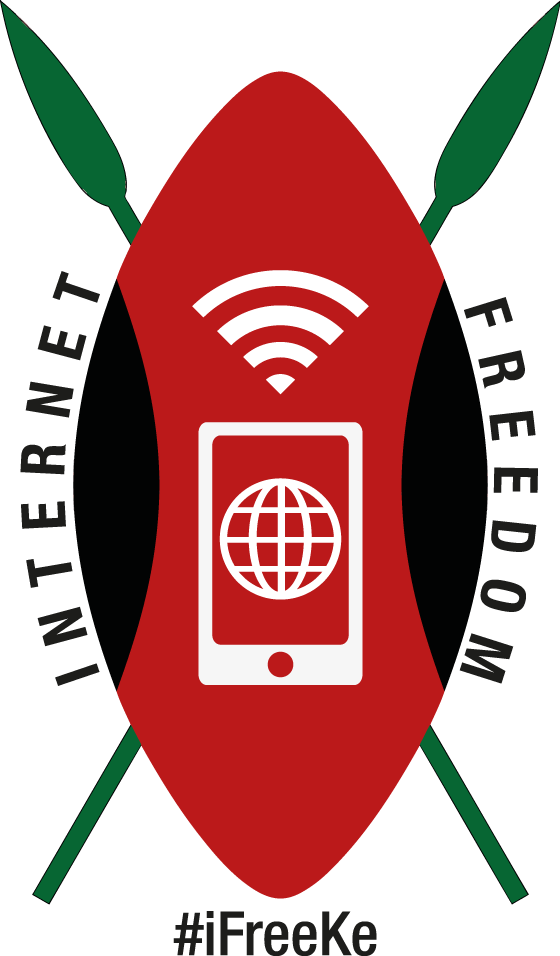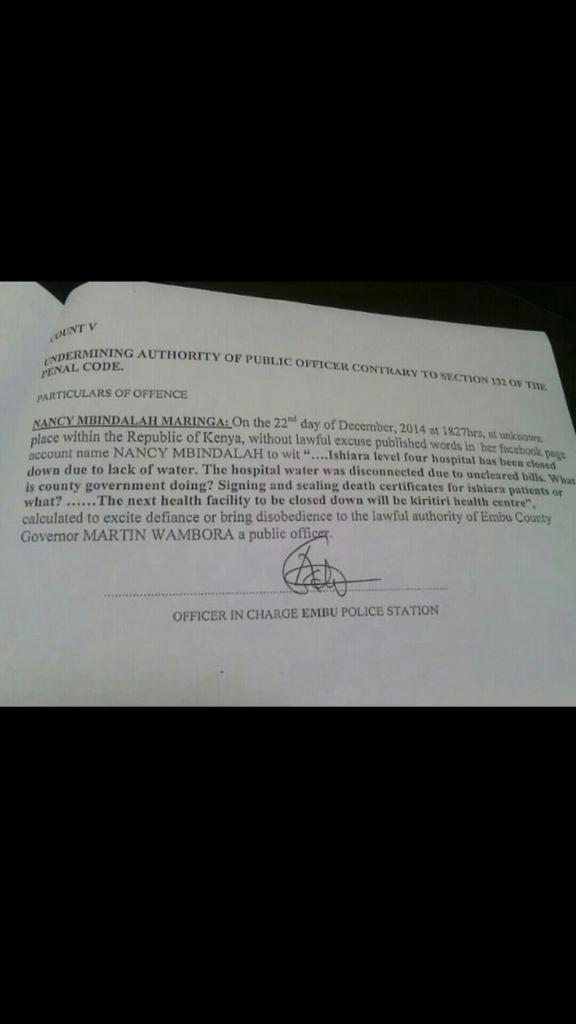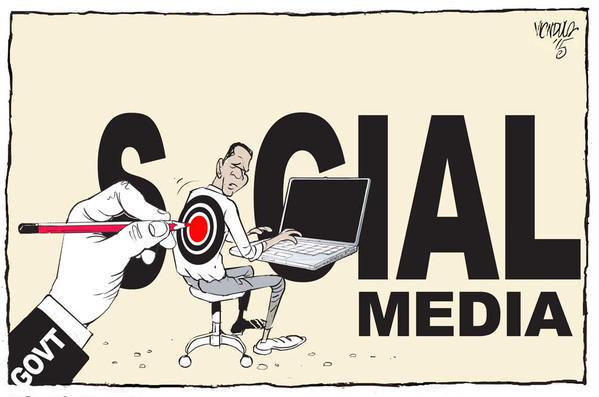
This year, Kenya joined the rest of the world to mark #InternetFreedomDay amidst increased cases of criminal prosecutions and civil litigation against social media users and other content creators exercising their freedom of expression through publications on the internet under the belief that Kenyans have a right of access to information.
With regard to criminal prosecutions, we have discussed here the cases of Allan Wadi and Robert Alai. As many will recall, Allan Wadi, an undergraduate student was sentenced to serve 2 years in jail for several posts published on his facebook page against President Uhuru Kenyatta. Alai is currently out on bail after being charged with the offence of undermining the authority of a public officer as result of tweets he published against the President.
Since then, there has been two new cases of criminal sanctions taken against social media users, namely Nancy Mbindalah and Abraham Mutai. According to a media report here, Mbindalah, a 24 year old university student was arrested and detained for allegedly insulting the Embu County Governor on her Facebook page. The details of the offence can be viewed below:

The latest case reported here involved Abraham Mutai, a blogger who was arrested and charged with a similar offence under the Penal Code although the arrest was believed to have been prompted by his recent expose on corruption and the ivory trade. The hashtag #FreeMutai instantly became trending in Kenya.
Outside the Executive branch of government, the Legislature appears to have dealt a near-fatal blow to freedom of expression with the passing of the controversial Security Laws Amendment Bill, 2014 which was assented to by the President towards the end of 2014. We have discussed the impact of this enactment on social media users in Kenya here and we continue to follow the matter which is currently awaiting judicial determination.
It is against this backdrop that the Bloggers’ Association of Kenya (BAKE) recently issued a statement condemning the Government’s prosecution of dissident citizens online. The statement reads in part:
“As an organisation that represents the interest of bloggers in Kenya, we are concerned with the process followed in the jailing and prosecution of Kenyan Bloggers and Online Content Creators. The Kenyan Government is seemingly becoming quite intolerant of voices of dissent and dissident Kenyans who have taken to Social media platforms to exercise their freedom of speech.
While we do not, in any way condone the behaviour of some online content creators, be they our members or not, we find the rulings punitive and a means to discourage free speech online.These three cases of Allan Wadi, Robert Alai and Nancy Mbindalah have brought to light the government’s curtailing of free speech by the Kenyan online community and the limitations to their rights as Kenyan Citizens.
We do not regulate bloggers and we do not plan to. Blogs and social media are tools for self-expression and interaction. They allow Kenyan Citizens and to exercise their right to free speech and expression on the internet. We thus cannot curtail these freedoms. We however do require that our members adhere to a code of conduct especially in regards to plagiarism, defamation and adhere to our country’s laws.
There is increasing pressure to, not only regulate bloggers, but also, to intimidate them into silence for revealing information that the public have the right to know.
Freedom of expression is enshrined in Article 33 of the Constitution of Kenya and includes the right to seek, receive or impart information and ideas, while Article 31 provides for the right to privacy.
It is our hope that the existing laws will work towards the protection of all Kenyan Citizen online as well as protection of free speech rather than its misuse to selectively punish and discourage online discourse.”
With regard to civil litigation, the High Court in the recent case of CfC Stanbic v. COFEK found that an article published by COFEK entitled “How true is this allegation on Stanbic Bank Juba Branch on Foreign Exchange Transactions.” was defamatory and that COFEK, a consumer rights lobby organisation, could not rely on the freedom of expression under Article 33 of the Constitution to justify their publication. Last year, the High Court granted sweeping orders against blogger Robert Alai in a defamation suit.

In a 2014 report titled “State of Internet Freedoms in Kenya 2014 – An Investigation Into the Policies and Practices Defining Internet Freedom in Kenya” by Collaboration on International ICT Policy in East and Southern Africa (CIPESA), important recommendations are made including:
• Kenya should expedite the enactment of the Access to Information law and the Data Protection law. Civil society should be given opportunity to provide meaningful inputs into these laws.
• The circumstances and laws under which individuals are charged over their online activities need to be clarified. The National Cohesion and Integration Act has improperly been applied to take action against individuals accused of propagating hate speech.
• There should be clear definitions of what constitutes hate speech and ‘causing annoyance’ as grounds for taking legal action against individuals.
• Conversations on what constitutes free speech and the distinction between blind control and respect for freedom of expression online should be fostered and should draw in civil society, the media, religious organisations and government departments.
• Create awareness among the media and human rights defenders on internet freedoms and encourage development of a network of advocates and educators on online freedoms.
• The NCIC, police and other security organs should make public all results of their surveillance of citizens’ communications, as well as investigations and prosecutions of hate speech and other offences and crimes committed via digital technologies.
• The law should clearly specify the responsibilities of intermediaries and other parties in relation to filtering, removing and blocking content, the steps that need to be followed in these processes as well as appeal processes where there is an attempt to filter, remove or block a site or content.
A copy of the report is available online here.